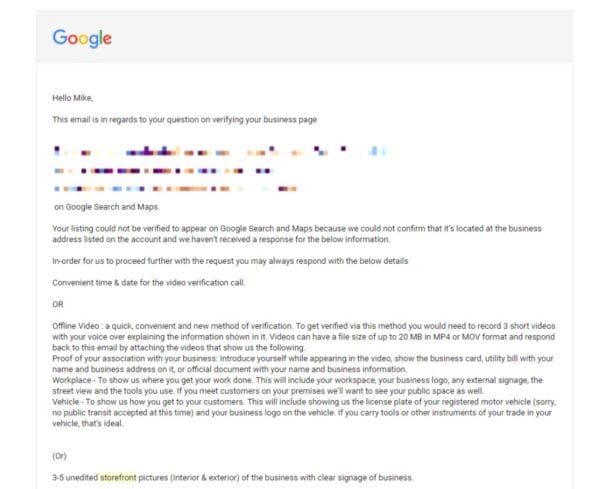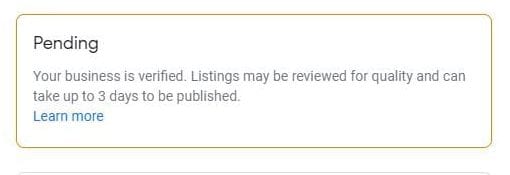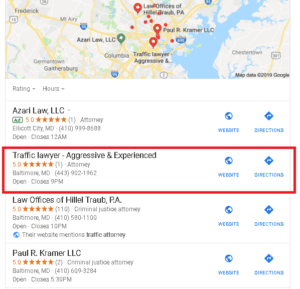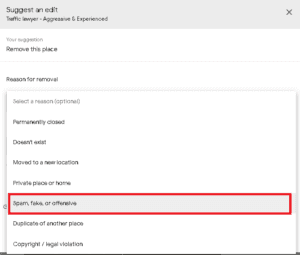Updated March 28th, 2022
Though much of the content below has been updated throughout the years, it is clear in the following article that the “big crackdown” has been going for the past 2 and a half years at least. Before that, the shortcuts and steps that could be taken have mostly worked.
Feel free to read what is below as more of a history of GBP updates, but I’ll give you the rundown of what our team has been seeing as of the past few months.
Long story short, virtual offices are seemingly not an option any longer.
Even when properly vetted and all bases are covered, the likelihood of having an established new business at a VO location seems unlikely. This is after dozens of trials for multiple businesses over the past couple months. Though the overzealous precautions that Google has taken may ease up in coming months, as this affects more than a fair share of legitimate, verified brick and mortar locations, Google is definitely in a “better to beg for forgiveness than ask for permission” phase with rounding up location it deems to be unsatisfactory. This is clearly the case with the simultaneous issues businesses are having with their legitimate client reviews on GBP not showing up (sound familiar…*cough*…Yelp…*cough*).
The future is…actual office space?
This answer is “seems so”. GBPs are invaluable and many times game-changing for small to medium-sized businesses, and so even if the days of your $100/mo VO may be over, there may be desks and relatively smaller spaces that are operational that are $400-$600/mo. This may not be in the cards for some people, but look on the bright side – at least you won’t have to figure out how to generate positive reviews for dozens of locations.
And for the rest – much is still relevant, going back a couple years.
From as far back as I can remember, the latest “major update” to getting a business listed on Google Business Profile was Google cracking down on virtual offices – businesses can add more locations by simply paying Google fees of $50-$125 a month to get a physical address that would essentially “open” a new location, offering more local exposure and in turn, more leads. The biggest virtual office companies in the states are these Big Three – Opus, Regus, and Da Vinci. The model of these companies is pretty unique if you take a moment to let me indulge. They typically don’t own their own buildings or locations; instead, they reach out to existing businesses, co-working spaces, and buildings offering suites and ask if they’d like to make a passive revenue stream by offering virtual offices and letting them manage that aspect of it. Thus, so many locations are available and popping up quickly on Google’s radar.
What is the problem with virtual office listings?
I’d say that in 2015 there were some official announcements of Google’s specific identification of Opus, Regus, and Da Vinci office locations having an official red flag for taking advantage of their GBP product. They had identified the “Big Three” and saw that the virtual office exploitation was becoming rampant, and so much of the SEO community saw that virtual offices here, while often still approved, had minimal traction in local packs. This coupled with the fact that so many businesses had already done it made it nearly impossible for newcomers to have traction in these offices. Though somewhat logical, what isn’t is the fact that all these buildings have thousands and thousands of real office suites that legitimate businesses operate in every single day. It seems like an approach where Google basically said, “well we may screw thousands out of their GBP product, but we’ll prevent tens of thousands from taking advantage of it at least.” Virtual offices and the thousands of other one-off locations across the country still exist and have thrived for years. Until recently….
Google Starts Cracking Down on Virtual Offices
The first instance I saw of Google Business Profile representatives cracking down on the notion of virtual office abuse occurred with one of my own clients, who also had legitimate office locations. A Google representative called different office locations and asked about the different addresses and phone lines. All it took was one hapless secretary to forget there was one satellite office 20 miles west of the main office for the representative to assume misconduct and proceed to consolidate not one but all locations into the main location. The consolidation interfered with the existing main listing and replaced its 200+ 5-star reviewed, optimized location with a brand new unoptimized listing with a dozen reviews. The unraveling of that debacle took weeks.
Avoid Run-ins with the Google Business Profile Police
If you’re claiming locations right now, the biggest obstacle you may encounter is heightened forms of verification. Being able to do phone verification seems like a distant memory, and even postcards aren’t as predictable as they used to be. What is most common now is signage and frontage of your location, where if you plan on doing virtual offices, seems very troublesome unless you plan on spending a great deal more money monthly. But this started about a year ago. The next iteration of verification is even more worrisome for many!
A couple of months ago, I started seeing instances of the following:
- Verifying you operate out of an office by providing utility bills or a business license
- Verifying you operate out of an office by not just providing imagery of signage and building frontage, but actually, an entire video of you filming the signage and proceeding to walk to your office and show the working environment of your supposed office in use. See an example of this type of email request below.

Google Business Profile has also started conducting more thorough quality reviews. Listings verified with postcard codes can now stay in the pending phase indefinitely. When reaching out to Google Support about this issue, they will likely request storefront pictures to finish verification each time. Businesses with no online record of being located at an address or businesses using an address shared with multiple GBP listings are most susceptible to getting flagged in quality checks.

Holy moly, right? Now I know it isn’t the worst situation for Google to take verification to the next level through updates to their algorithm and an entirely new, potentially massive department to be able to manually check these documents and videos, but why now? Has the level of abuse for GBP listings gotten that out of hand? I’d say yes and no. There is spam abuse that exists regardless of getting an office or not, like the following:
Google also updated its process for calling out locations to be considered spam:
Again, all of this is very new and is probably in preparation for Google to roll out new paid features of GBP in which they can ensure the product is as legitimate as possible before letting too many bogus and inaccurate listings take advantage of them. You can read about it here:
I believe the main reason lies in here, as leveraging a bogus listing with paid features would be a disaster to the new GBP paid campaign. Can you imagine a fake listing also taking advantage of promoted ads, review features, enhanced visibility, and other features highly increasing its likelihood of conversion?
Or listen to my podcast about it here. We think that there’s a very good chance Google will indeed roll out many of these features because frankly, isn’t Google slowly but surely monetizing every aspect of their search results?
Thinking Outside the Virtual Office
Google’s policies for GBP have always dictated along the lines of businesses’ conducting their business at the location, meaning employees are present. Though virtual offices are completely sufficient in catering to the needs of clients, from a general front desk to conference room space and other typical office amenities, there technically aren’t any permanent personnel fixtures.
Google has always had plenty of people manually filling in the gaps where their algorithm couldn’t, from checking spam websites to now verifying legitimate office locations. If virtual offices are no longer going to be viable being signage verification and the algorithms finally deciphering virtual office locations, what are your options for expansion? Of course, Google would want an entirely new physical location, but renting suites is a viable option – think more like $300-$400 a month instead of $50-$100 though. Sharing office space with existing businesses that haven’t participated in any virtual office activity whatsoever is also a good approach.
At Market My Market, we can help your business manage your Google Business Profile listings and make sure the activity on these listings doesn’t get on Google’s bad side. Find out how we can help with a free marketing consultation.

The ongoing digital revolution is transforming the way that all businesses interact with clients and customers. Consumers rely heavily on digital channels for researching products and services and expect to make buying choices with the swipe of a finger. For organizations that want to remain competitive, having a defined digital marketing strategy and execution plan is essential for successful outcomes. With a demonstrated history of creating and implementing strategic digital marketing initiatives that drive growth, I am committed to delivering real, measurable results for my clients.




